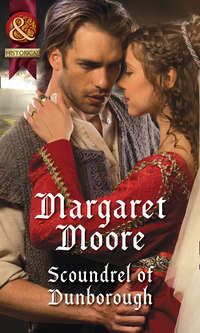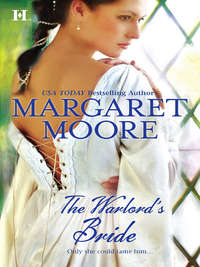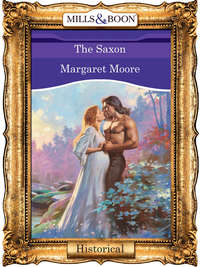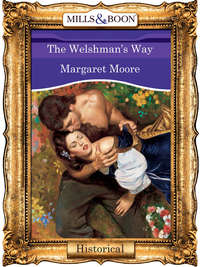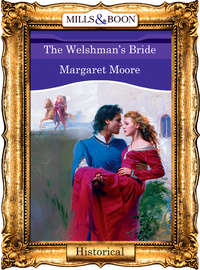
Полная версия
Knave's Honour
Garreth shot a proud glance at Keldra. “Aye, I helped him. I shot him.”
“You shot him?” Lizette repeated incredulously.
“Put an arrow in his foot, or he would have run after Wimarc’s men and got caught himself instead of just Ryder.”
Garreth plucked his bowstring like a minstrel about to start playing a tune. “Don’t tell him I told you about that, eh, my lady? I don’t think he’d like it, and you don’t want to see him in a temper.”
No, she didn’t believe she would. “I won’t.”
He glared at Keldra. “Nor you, neither.”
“I don’t want to talk to him, and I certainly don’t care to repeat anything you might say!” Keldra retorted.
Wanting to lessen the tension between them, Lizette turned the subject to Garreth himself. “What about you, Garreth? Where are you from?”
The young man shrugged his shoulders. “I don’t know where exactly I was born. London, I suppose. The first thing I remember is running through the streets with a hot loaf of bread and being chased and called a thief.”
His jaw clenched as he regarded her. “No need to pity me, my lady. I wasn’t the only lad living rough in the alleys. We was like a family, most of the time. And we had some jolly times.”
With youthful bravado, he proceeded to regale her with a few adventures, clearly proud of the narrow escapes and illegal adventures that, Lizette knew, could have ended with his death at the end of a rope. But there were a few other stories, too, of camaraderie and friendship and loyalty that made it easy to see why Finn would take him under his wing and consider him a trustworthy friend and ally, despite his lack of years.
Even Keldra’s expression held a dollop of admiration by the time he came to his rescue by Finn. “And I’ve already told you about that,” he finished.
“I hope you’re not talking the lady’s ear off.”
Lizette nearly jumped out of her skin.
Finn had come up right behind her. Blushing, although she’d done nothing wrong, she got to her feet and smoothed down her skirts to give herself a moment to regain her composure.
“I trust you’ve eaten and rested enough,” he said, starting down the path. “Even if you haven’t, we can’t stay here any longer. Wimarc’s men aren’t close yet, but they’ve got horses and we don’t.”
Garreth grabbed the pouch and hurried after him, leaving the women to follow.
“I didn’t tell them anything important,” he said as he reached Finn.
“I didn’t think you did,” the Irishman replied. “But be careful of beautiful women, Garreth. They can weave a spell around a man and make him tell all his secrets.”
As he had recent cause to know.
LADY JANE DE SHEDDLESBY knelt in front of her mother’s memorial plaque in the small church. It was an expensive thing, finely carved, the name and dates deeply etched, just as her mother had directed before her death.
“I want it to be legible forever!” she’d decreed, as if that would somehow ensure she would live on in people’s memories.
She would anyway, at least in her daughter’s, although perhaps not in quite the way she’d hoped. Lady Ethel de Sheddlesby had not been a font of gentle kindness to her daughter, or anyone else, during her long life.
In spite of that, however, her death had left a void in Lady Jane’s existence. She had her small household to oversee, of course, and since it was unlikely she would ever marry, given her age and lack of beauty, she must find her joy in that. Or become a nun, and that she didn’t want to do.
No, she would maintain the estate until she died and it passed to a distant male relative, and she would go to the church to pray for her mother’s immortal soul, although she rather expected her mother was not in heaven and never would be, no matter how many prayers and masses were said in her behalf.
Still, the building, made of stones that came pale from the earth, then turned to a warm brown, was not an uncomfortable place to spend some time, and the lingering scent of incense and damp wood and stone was a comfort in its own way.
“My lady! My lady!”
At her maidservant’s panicked cry, Jane glanced at the double doors, where Hortensa pointed a shaking finger into the yard. “There’s a … a man!”
Despite her maid’s agitation, Jane saw no need to be frightened or rush to the door. Hortensa was prone to hysterics, so this man could be a peasant, a tinker, a soldier or even a priest passing by. Instead she rose, made the sign of the cross and then, wrapping her cloak more tightly about her, started toward the door.
“I think … I think he’s dead, my lady!” Hortensa cried with ghoulish relish.
That made Jane quicken her steps. When she reached the door, she peered into the churchyard.
There was indeed a man lying prone among the gravestones. He wore chain mail and a surcoat, and his arms were at his side as if he’d been crawling toward the church when he’d collapsed on the ground. He had no sword in his scabbard, or helmet on his head, and his gray-and-black hair looked damp, no doubt from the dew. He’d probably been there at least a portion of the night.
Most disturbing of all was the dried blood on his surcoat. He’d obviously been attacked—but by whom and how had he come there? Was he alive, or dead?
Jane opened the door wider, intending to go to him, until Hortensa stuck her arm across the opening to bar her way. “If he’s alive, he might be dangerous!”
“If he’s alive, he’s unconscious,” Jane replied, certain of that if nothing else. “Look at his surcoat—that’s no thief or outlaw’s.”
“He could be one of them mercenaries riding about the countryside! Terrible men they are, robbing and raping and God knows what else!”
There was a chance Hortensa was right, yet Jane didn’t think she was. “I’ve seen the sort of mercenaries Lord Wimarc commands, and they don’t dress like that.”
“That fellow could have robbed a knight. I wouldn’t put nothing past those blackguards Lord Wimarc hires.”
Hortensa was right about that, too, and yet.” I can’t leave a man in such a state,” Jane declared as she pushed away Hortensa’s none-too-slender arm. “He might die before our very eyes.”
“What if he’s a thievin’, rapin’ murderer?” Hortensa protested as she reluctantly followed her mistress, trotting to keep up with Jane’s brisk pace. “What would your poor sainted mother say?”
Her mother had never been poor, and she would never be a saint. “Probably exactly what you’re saying.”
Despite what Hortensa might want to believe, her mother’s postmortem censure had no power to influence Jane. She’d lived too long under her mother’s thumb while she was alive not to enjoy her freedom now that she was dead.
Jane knelt beside the man and gingerly parted the torn surcoat of thick black wool where a blade had cut through both surcoat and mail into the right shoulder; the mail, cloth and flesh beneath were now crusted with dried blood.
How long had it been since he’d been wounded? How had he managed to live despite that grave injury? He must have lost a quantity of blood.
He groaned.
Startled, she sat back swiftly.
“Careful, my lady!” Hortensa unnecessarily warned.
Jane looked up at her anxiously hovering maid. “He’s too seriously injured to do us any harm,” she said before she gently rolled the stranger onto his back.
He moaned piteously and his arms flopped as if they had no muscles. More blood trickled from his full lips and matted his grizzled beard and hair. His nose arched like one of the Roman emperors whose busts she’d seen in London, and his skin was brown from hours in the sun. A soldier, surely, and perhaps a knight.
“Sir?” she ventured as she looked for more wounds. She couldn’t see any more, thank God. “Sir?”
When he didn’t answer or open his eyes, she laid a hand on his forehead.
“God’s wounds, he’s burning. Hortensa, run back to the manor and fetch two men with a wagon. We’ve got to get him home and in a bed. Then go for Brother Wilbur. This man’s wounds and fever are too severe for my skills.”
“But my lady, we don’t know nothing about him—who he is nor how he come here. Your mother would never do such a thing.”
Jane pressed her lips together. No, her selfish, querulous mother would never bring a wounded stranger into her household—but she was not her mother.
“My mother is dead,” she said firmly, “and I’m chatelaine of Sheddlesby, so if I order you to fetch my men to take this poor Samaritan back to my hall, you will do it.”
“Yes, my lady,” Hortensa replied, suitably chastised by Jane’s forceful words.
As Hortensa ran off toward Sheddlesby, Jane took the stranger’s callused hand in hers.
“You’re going to be all right,” she softly vowed. “I’ll take care of you, whoever you may be.”
CHAPTER FIVE
NORMALLY, LIZETTE enjoyed being in the cool, quiet woods. Many a time she’d fled to the forest outside Averette to get away from the conflict in the household: her tyrannical father raging at her poor, sick mother; Adelaide doing her best to come between them and make peace; in more recent years, Adelaide’s unwanted suitors, who could be amusing or interesting, but just as often a lascivious nuisance; Gillian gravely looking on or going to the kitchen to be with the servants, endearing herself to them with her quiet, competent ways.
Alone in the forest, Lizette could pretend to live the exciting adventures she craved. Sometimes she was a poacher sneaking up on a mighty stag; sometimes she was a ‘Gyptian girl, telling fortunes or dancing for money. Other times, she was a bold knight tilting at trees with a long stick, guiding her imaginary trusty steed. or else she was simply Lizette, singing with the birds—exhibiting her one true talent to them alone.
Unfortunately, this forced march through trees and undergrowth, over a barely visible path, fleeing men who wanted to do her harm, led by an outlaw who’d pretended to be a knight, was something else entirely.
Finn abruptly held up his hand to halt them.
They had come to a road, Lizette realized. Keldra sat on the ground and tried to catch her breath, while Garreth trotted up beside Finn.
After looking up and down the road, Finn glanced at the panting Keldra, then addressed Lizette. “I think it’s safe enough to use the road a ways.”
Thank God—but if he was expecting her to thank him, he was going to be disappointed. He’d been silent and sullen, brooding and grim since his return, although it was his own fault if he was annoyed that she’d spoken to Garreth. If he’d been less mysterious and more forthcoming, she wouldn’t have had to ask questions of his friend.
“It can’t be so very far now,” she said to Keldra to encourage the girl.
“I hope not, my lady, or my legs are going to give out entirely.”
“Mine aren’t much better,” Lizette confessed as she helped her maid to stand, and that wasn’t a lie.
If they had to keep walking at such a brisk pace for much longer, she’d have to ask Finn to let them rest again, and she didn’t want to do that. She would hate to imply that she couldn’t keep up with him.
As they started for the road, Finn ordered young Garreth to help Keldra. He looked as if he’d like to refuse; however, she could tell from the set of Finn’s shoulders that he wouldn’t welcome a refusal and so, obviously, could Garreth.
Then the Irishman said, “My lady, I would have a word with you.”
It was a command, not a request, which did nothing to assuage her ill humor. “So, you deign to speak to me now?”
He gave her a sour look as he started down the road, expecting her to follow as if she were his trained hound. Unfortunately, since she had absolutely no idea where she was, she had no choice but to follow him.
“During the rest of the remaining time together we may share, if you have questions, ask them of me,” he said. “Leave Garreth in peace.”
“I didn’t think I was upsetting him,” she countered, “and your secretive manner left me no choice. Is it really so surprising that I’d want to know about you? I’ve put our lives in your hands.”
Scowling, Finn stepped over a puddle in the rutted road. “Very well, my lady. Ask me what questions you will, and I’ll do my best to answer.”
Now that he was willing to respond, she wasn’t sure what to say. She would start, she decided, with his half brother. “What has your half brother done that’s more shameful than stealing?”
The Irishman’s jaw clenched and his strides lengthened a little, as if he’d like to hurry away from her. She wasn’t about to let that happen, so she quickened her pace. “You said you would answer my questions,” she reminded him.
Before he could, a pheasant, roused from the verge of the road, flew up into the sky in a flurry of wings, and they both checked their steps. In the next moment, an arrow caught the bird, sending it plummeting into the bushes ahead of them.
“Good shot, Garreth!” the Irishman exclaimed. “No need to worry about our supper tonight.”
“Aye!” Garreth replied as he jogged down the road toward his fallen catch, leaving Keldra and the others behind.
“While Garreth’s getting the bird, we’ll rest a bit,” Finn said. He gestured at a nearby stump. “Keldra, you sit here. Garreth won’t be long.”
He turned an inscrutable gaze onto Lizette. “If you’ll walk over there with me, my lady, I’ll answer your questions in private.”
Lizette told herself it was proper that he speak so formally. That denoted respect, and a necessary change from his casual insolence. After all, he was an outlaw and a thief. She was a lady and the king’s ward.
The Irishman led her a little farther down the road and pointed at another stump for her to sit upon, out of earshot of Keldra, although not out of sight.
Finn leaned his weight on one leg, crossed his arms over his broad chest, fixed his steadfast brown eyes on her and said, “Ryder and I had the same bitter, broken mother, but different fathers. For the past ten years, Ryder’s been in a monastery in the north, studying, or so the plan was, to be a priest.
“Lately he decided against the priesthood. Celibacy, apparently, was not for him.”
If Ryder looked anything like Finn, Lizette thought, celibacy would be a waste.
Embarrassed by that thought, she immediately lowered her head so Finn wouldn’t see her blushing, even as she tried to stifle her wayward imagination and the vision of Finn in a bed, smiling and waiting for … some woman.
“So Ryder left the monastery and came looking for me. He thought being an outlaw an exciting life. He managed, by a miracle, to find me and when he did, he quickly learned the folly of his notions. Life as an outlaw is not adventurous, or even comfortable—sleeping rough, eating when and where you can, hiding, always on the move, never at home, never at peace, wondering every day if your luck’s going to run out and you’ll be caught and hanged.”
Although she’d always craved an adventurous life, at least she’d had a home—a place to lay her head, and where she could always be sure of food and a certain respect, if not happiness. “I’m not surprised you wanted something else for your brother. Yet surely there were alternatives other than the priesthood and thievery.”
“Aye, and so I told him,” Finn replied. “But he’s young, like Garreth, and he resented my advice and my refusals to let him try his hand at robbery. He took to finding solace in drink and picking fights to prove he could defend himself, that he was as tough as his brother and worthy of respect. One night, he laid into some of Wimarc’s men—too many, as any man of sense could have told him, but Ryder was drunk and I was with a woman.”
Lizette swallowed hard and stared at the toes of her boots. Of course he must go with women. Between his handsome face, magnificent body and the romance of being outside the law, he probably had to beat them off with a stick. She shouldn’t think the less of him for that. He was a very masculine man, after all, and men had their needs …
“Disgusted you, have I?”
Disgusted? No. Rendered envious of the women who enjoyed his nocturnal company, yes—although she wouldn’t say so. “It’s a little disconcerting to hear a man admit he was with a woman.”
“I’m no priest,” Finn replied. His gaze seemed to grow even more penetrating. “How do you know I wasn’t with my wife?”
Wife? Lizette thought, stunned. “I didn’t think outlaws married.”
“Oh, they do—common law, same as peasants.” He smiled as if enjoying her discomfort. “Not that I have.”
“But you said—”
“I said, how do you know I wasn’t with my wife? You assumed I was with a whore, didn’t you?”
He was right, so she didn’t reply.
“I may not be married, but I don’t use whores. I know what that life did to my mother.”
It had clearly affected him, too. “Yet you’ll make love with a woman outside of wedlock?”
“Aye, if she’s willing, and I am.” He regarded her with cool deliberation. “Would you hold a peasant to a higher standard than the nobles of the court? Even the courtiers who are wed take their pleasure wherever they can get it.”
She had heard that from Adelaide, too. Nevertheless, she had no intention of commenting on the morality of the court, or thinking about his conquests, so she returned to the original subject of their discussion. “And while you were with this woman, your brother was captured by Wimarc’s men.”
“Aye,” Finn said grimly, “and by the time I heard what was afoot, three of them had him pinned, and when I went to help him, Garreth stopped me.”
Remembering that she’d assured Garreth she wouldn’t reveal what he’d told her about that, Lizette didn’t let on she already knew how.
Finn gave her a wry little self-deprecating smile. “He shot me in the foot. Well, my boot. He thought he was doing the right thing, so I don’t fault the lad. I blame myself for Ryder’s capture. I should have taken better care, but I did not. Fortunately, Garreth did more harm to my boot than he did to me.”
She could see and hear his remorse and guilt for not saving Ryder. But whose fault had it really been? His, for being with a woman, or his brother’s, for starting the fight?
She, who’d dawdled and left her cortege open to attack, knew—and it was not the older brother’s. “Garreth probably thought you’d have been imprisoned, too, and then where would you be? Now at least you can try to rescue your brother—although that won’t be easy if Wimarc’s men are like the ones who attacked my cortege. How do you plan to do it?”
“If I had a plan, I’d be acting on it already.”
“You impersonate a nobleman very well. Could you not use that to your advantage?”
“Aye, if getting into Wimarc’s castle was all I needed to do. Unfortunately, it’s finding Ryder and getting out again without being caught that’s the trouble.”
Garreth burst out of the trees as if he’d been flushed like the pheasant he carried by its feet. “Somebody’s coming!” he panted. “Just round the bend. Men and horses, and I heard a woman, too.”
Finn stiffened as if he’d seen Medusa. “Into the trees,” he ordered.
Garreth obeyed at once, while Keldra jumped to her feet, panic in her face. She was about to follow Garreth, until Lizette ordered her to wait.
“I don’t want us to get separated,” Lizette lied when she saw Finn’s brows contract in consternation.
Paying him no more heed, she hurried to her maid.
“What are you up to, my lady?” he demanded.
Since he’d guessed she wasn’t simply going to Keldra to ensure they stayed together, she decided to be honest, or at least partly, and if he were truly taking them to the convent as he claimed, he should agree with her plan.
“If there are women in the group approaching, it must not be Wimarc’s mercenaries,” she said, meeting his querying gaze steadily. “These must be other people—farmers, perhaps, or merchants, or maybe even nobles. I’ll ask them for assistance, and surely they’ll give it when they find out I’m a noblewoman.”
Then she wouldn’t have to worry about trusting an Irish outlaw, or be troubled by her attraction for him, which was risky and unwise, no matter how handsome he was.
Surprise, and something that looked rather like dismay flashed in Finn’s eyes, although it was quickly quelled. “You don’t know who these people might be. I can tell you, my lady, that there are bands of outlaws who have women among them. There’s no guarantee the people approaching will be any more likely to treat you honorably than Wimarc’s men.”
“I’m grateful for your assistance, but Keldra is exhausted, and so am I. We can’t keep going at such a pace, and it’s just as likely these people will help us as the nuns at the convent—which you’ve never named,” she noted.
“St. Mary’s-in-the-Meadow,” he shot back. “And I didn’t risk my life to have you put yourself—and your maidservant—in danger again.”
She’d obviously wounded his pride as surely as if he were a knight of the realm and she had called him dishonorable, but that could not be helped. “I don’t think that’s likely, so unless you want to be seen, you should hide.”
“Oh, now you will protect me? How generous, my lady,” he replied, making a mocking imitation of his formerly elegant bow.
“Will you linger to disparage me and get caught?” she demanded, more worried about his safety than upset by his sarcasm. “It would be poor recompense for you if I let that happen.”
She would never see him again; what harm to say more if it encouraged him to leave? “Indeed, I would regret it very much if you were to suffer because you helped me.”
He didn’t reply. He simply continued to look at her with those intense brown eyes of his.
“What will happen to your brother if you’re taken?” she demanded at last, determined to have her way in this and prevent his possible capture.
Finally she had said something that would make him go, and he turned on his heel.
She was relieved. She had to be.
“Godspeed!” she called out as he strode into the woods with Garreth quickly following. “And thank you.”
Finn didn’t even look back.
CHAPTER SIX
LIZETTE WAITED by the side of the road with a trembling Keldra and tried to convince herself she was doing the right thing.
After all, could she really be sure that Finn and Garreth were helping them? He could be taking her to Wimarc, or some other place where he could hold her for ransom, since he knew who she was and to whom she was related. She was surely right to get away from him as soon as she could.
Brushing her tousled hair back from her face, she realized she must look more like a peasant than a noblewoman with her disheveled, matted hair and dirty face. Hopefully her accent and demeanor would mark her for the noblewoman she was. Nevertheless, she smoothed down her mud-stained skirts and pulled her cloak more tightly about her over her soiled gown.
Two soldiers rounded the corner—proper soldiers, not mercenaries in motley armor probably stolen. Their helmets gleamed in the morning light, no spots of rust marred their mail, and they wore matching woolen surcoats of scarlet and green. There was something vaguely familiar about those surcoats and the arms upon them, and the banners flapping from the pikes they carried.
Before she could remember to whom those soldiers belonged, a knight in gleaming chain mail seated on a marvelous destrier, with a woman dressed in a cloak of green-and-gold damask trimmed with fox fur, rode around the bend. The man had pushed back his coif and wore no helmet, so his fair hair, smoothed and cut in the bowl shape the Normans favored, shone in the sunlight.
She knew that hair, and she knew that face, and now she remembered whose standard it was: Lord Gilbert of Fairbourne, who had once visited Averette in the hopes of winning Adelaide’s hand in marriage. Or Gillian’s, if Adelaide said no. Or even hers, if he were desperate, although that’s not the way he’d put it when he’d cornered her in the stairwell.


